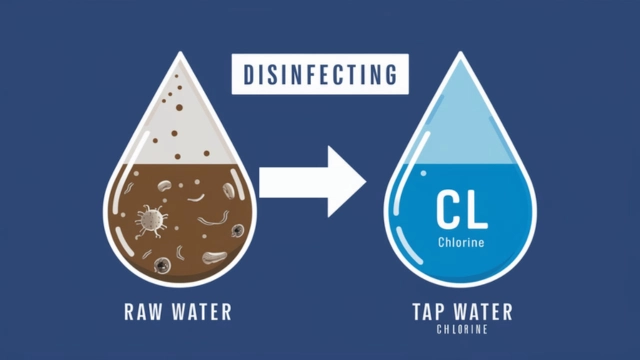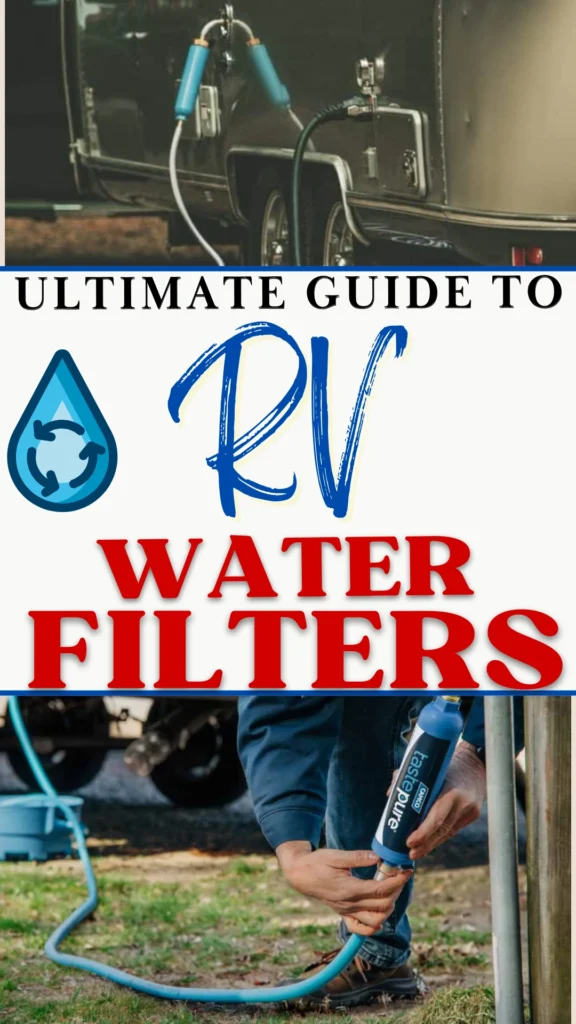RV Water Filters: The Ultimate Guide to Ensuring Safe and Clean Water on the Road
Embarking on an RV adventure is an exhilarating experience, but ensuring you have clean and safe water is paramount. RV water filters are essential for maintaining the quality of your water supply, whether you’re hooked up at a campground or venturing off-grid.
In this comprehensive guide, we’ll explore the importance of RV water filters, the types available, how to choose the right one, and tips for installation and maintenance.
Understanding Water Contaminants
Before diving into the types of RV water filters, it’s crucial to understand the contaminants you might encounter:

Sediments and Debris
Sediments, such as sand, mud, and organic matter, can cloud your water and clog your RV’s plumbing system. These tiny particles are common in many water sources and can significantly affect water clarity and taste.
Bacteria and Viruses
Water from off-grid locations may contain bacteria and viruses that can cause stomach upset and other health issues. These microorganisms are often present in untreated water sources and can spoil your journey if ingested.
Chlorine and Other Chemicals
Chlorine is commonly used to treat water and kill pathogens, but it can leave an unpleasant taste and smell. Filtration systems are necessary to remove these chemicals and ensure your water is pure.
Heavy Metals
Heavy metals like lead and copper can be present in water due to geological deposits or old plumbing systems. These elements pose long-term health risks and must be filtered out for safe consumption.
Types of RV Water Filters
Inline Water Filters
Inline water filters are popular for their simplicity and ease of use. They remove sediments, rust, chlorine, and other particles as water flows through, delivering cleaner water. These filters are compatible with various water sources and require minimal setup.

Under-Sink Water Filters
Under-sink filters provide thorough filtration by removing a wide range of contaminants, including sediments, chemicals, and odors. Installed under your sink, they improve the taste and clarity of your water, making it safe for cooking, drinking, and washing.

RV Water Filtration Systems
These systems purify water before it enters your RV’s plumbing, addressing various contaminants through a multistage approach. A whole RV water filter system ensures that every drop of water is pure, whether it’s for drinking or washing dishes.

Portable Water Filters
Portable filters are essential for off-grid adventures. They are compact and designed for flexibility, catering to travelers who rely on natural water sources. While lightweight and easy to use, they may not be as effective as larger, more permanent filtration systems.

UV Filters
UV filters use ultraviolet light to disinfect water by killing bacteria, viruses, and other microorganisms. These systems are often used as the last step in a water filtration system and are effective for on-the-spot disinfection.

Choosing the Right Type of Water Filter
Selecting the right RV water filter depends on your needs, filtration dynamics, and maintenance practices. Here are some key considerations:
Assessing Your Water Source and Usage
Evaluate the nature of your water sources and your water consumption. Do you rely on campground water amenities or often go off-grid? Knowing your water source will help you choose the right level of filtration.
Flow Rate and Filtration Capacity
Consider your water demands, including the number of faucets, showers, and appliances requiring a steady flow. Balance the flow rate with the filtration capacity to ensure uninterrupted purification.
Compatibility with Your RV’s Plumbing System
Ensure the filter integrates smoothly into your RV’s plumbing system without extensive modifications. Compatibility is key for effortless installation and use.
Budget Considerations
Strike a balance between your budget and the long-term benefits of a reliable filter. Quality filtration is essential for your health and well-being, so invest wisely.

Installation and Maintenance
Installation
Follow manufacturer instructions and online resources for a smooth installation process. Whether installing under the sink or mounting inline filters, precision and technical know-how are crucial.
Regular Maintenance
Adhere to maintenance schedules to keep your water filters operating efficiently. Periodic flushing or cleaning and replacing cartridges and elements are essential for optimal performance.
Tips for Extending Filter Lifespan
- Proper Storage
Store filters in a dry, temperature-controlled environment during winter or extended periods of non-use to preserve their integrity.
- Using Sediment Pre-Filters
Pre-filters reduce the strain on your main filter, improving filtration efficiency and extending its lifespan.
- Flushing Filters
Flush filters with clean water after seasonal storage or a temporary stop in travel to ensure they perform at their best.

DIY vs. Professional Installation
DIY Installation
DIY installation gives you full control over the setup and adds to your RV journey’s sense of accomplishment. However, it requires technical skills and the ability to troubleshoot obstacles.
Professional Installation
Professional installation ensures precision and compliance with manufacturer guidelines. While it can be costly, it provides peace of mind knowing your water filtration systems are in capable hands.


Conclusion
RV water filters are indispensable for nomadic living, providing comfort, health, and peace of mind. They play a vital role in battling contaminants and improving water quality, ensuring clean, safe hydration and enhancing your travel experience.
Investing in a top-quality water filtration system is essential for roadtrippers and adventurers, making road trips less stressful and more enjoyable.
Enjoy your journey with the assurance of clean, safe water!